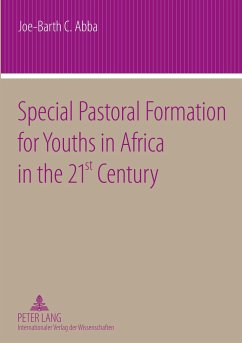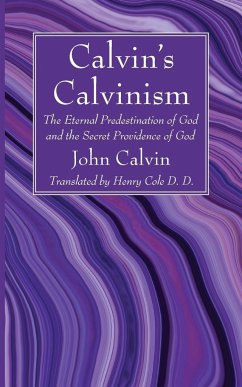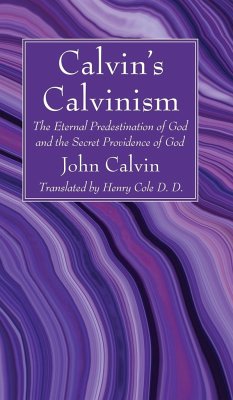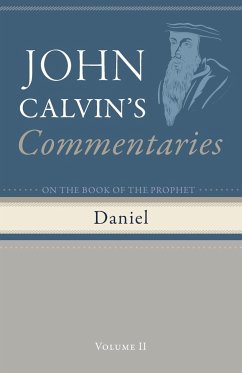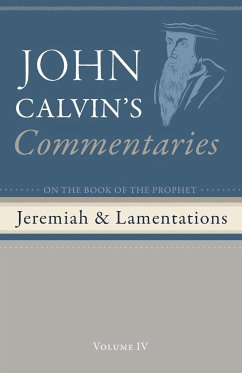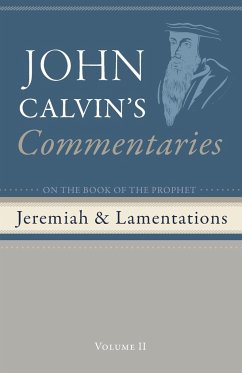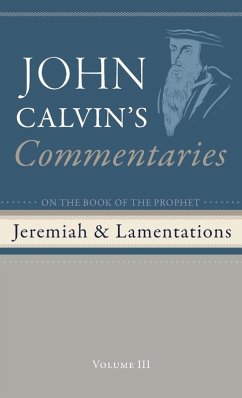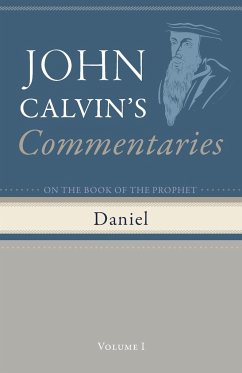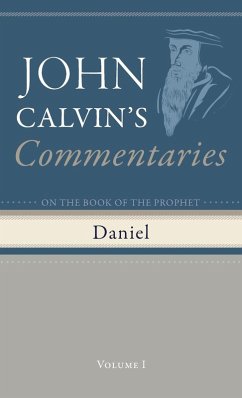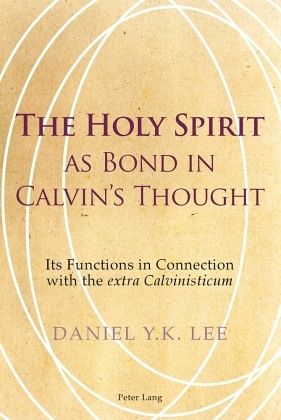
The Holy Spirit as Bond in Calvin's Thought
Its Functions in Connection with the "extra Calvinisticum
Versandkostenfrei!
Versandfertig in 6-10 Tagen
68,95 €
inkl. MwSt.

PAYBACK Punkte
0 °P sammeln!
The doctrine of the work of the Holy Spirit is hailed as a special gift from John Calvin to the Church. Its significance has gained increasing recognition even beyond its Reformed origins. In this study, the author contributes to a reappraisal of Calvin's pneumatology by focusing on its crowning motif, i.e. 'the Holy Spirit as bond'. Through detailed investigation of Calvin's writings against the background of the controversies in which he became embroiled, this study traces the emergence and function of this concept in Calvin's thought. The author shows how closely the development of Calvin's...
The doctrine of the work of the Holy Spirit is hailed as a special gift from John Calvin to the Church. Its significance has gained increasing recognition even beyond its Reformed origins. In this study, the author contributes to a reappraisal of Calvin's pneumatology by focusing on its crowning motif, i.e. 'the Holy Spirit as bond'. Through detailed investigation of Calvin's writings against the background of the controversies in which he became embroiled, this study traces the emergence and function of this concept in Calvin's thought. The author shows how closely the development of Calvin's pneumatology is correlated with his Christological decision in the so-called extra Calvinisticum. In order to transpose the Christological problem of two natures into a problem of offices of the Mediator, Calvin brings to light a corresponding office-pneumatology in the motif of 'the Holy Spirit as bond'. Any legitimate interpretation of Calvin's pneumatology or his theology at large cannotafford to overlook the theological impetus of this important motif.



